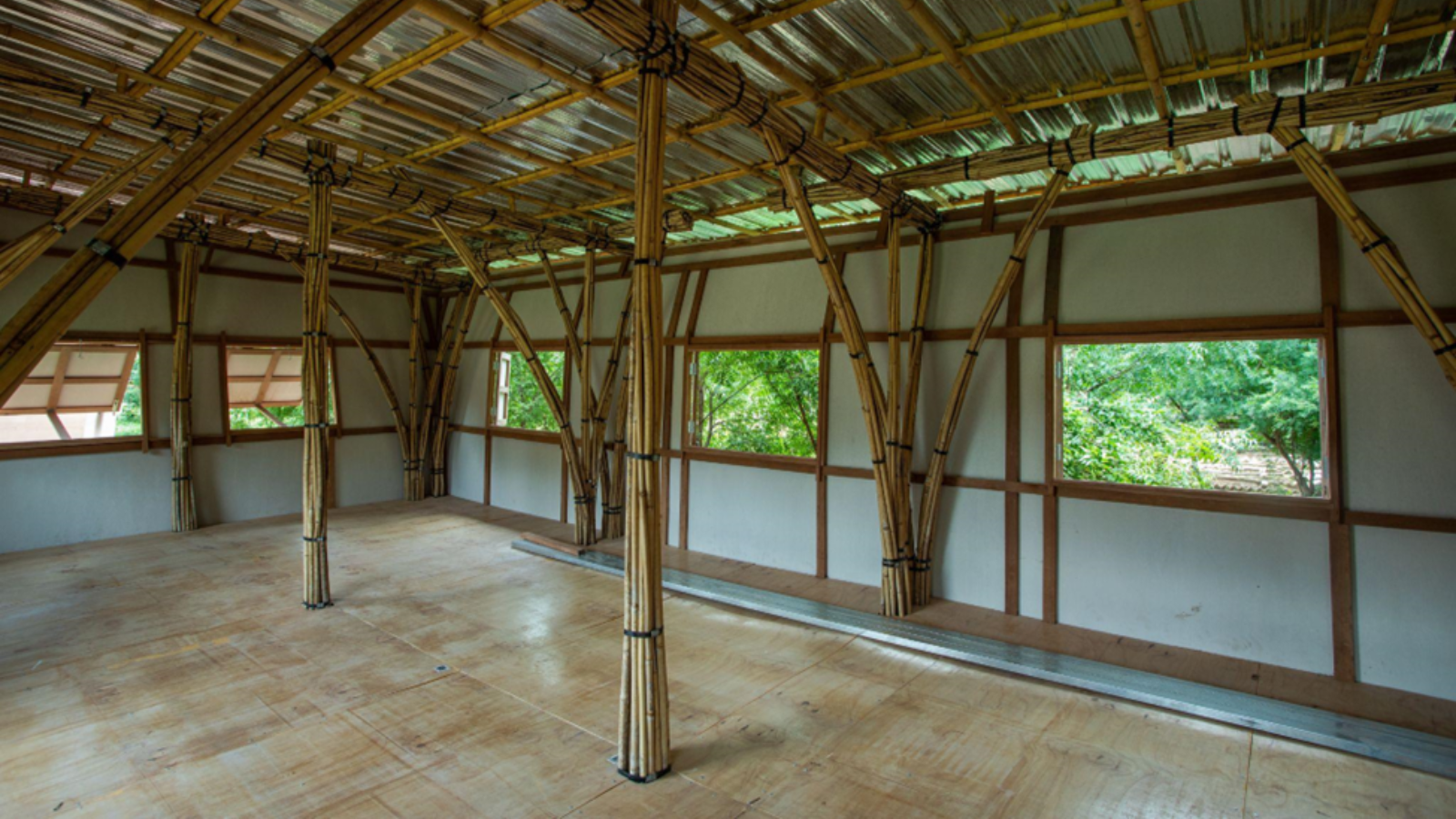
My Internship at HousingNOW: Building Resilience in the Midst of Crisis
Myanmar is collapsing under the weight of overlapping crises: brutal civil war, worsening climate events such as flash floods and landslides, and a major earthquake in March 2025. More than 3.5 million people are now internally displaced. The scale of need is massive. At the same time, traditional humanitarian systems are shrinking: USAID has pulled out. UK and French aid are in retreat. The few NGOs that remain after the 2021 military coup are overstretched, expensive, and too slow. Their overheads are massive, their timelines incompatible with emergency response, and their field teams often lack long-term local knowledge.
Founded by Raphael Ascoli during the coup, HousingNOW is a Myanmar-based social enterprise working entirely from inside the crisis. The company is built around a team of architects, bamboo engineers, builders, and community facilitators with over a decade of experience in Southeast Asia. Their mission: to build low-cost, high-performance bamboo structures - emergency and transitional housing, schools, and medical clinics, using a lean, agile, hyper-local model.
What sets HousingNOW apart is its innovation in ultra-low-cost, climate-resilient housing. Using small-diameter bamboo, a fast-growing, renewable resource that is typically discarded, the team has developed prefabricated interlocking frames that can be transported on the back of a small truck and assembled in just one week. The result: a safe, climate-adapted house that costs about the price of an iPhone. Each project is built with local communities: people are trained, paid, and empowered as they construct homes for themselves and their neighbours.

What I saw
It takes a certain kind of person to move to a faraway land and, under hostile conditions, tackle an inherently unsolvable problem and to do so relentlessly because the effort itself matters.
This is the founder’s mindset: obsessive, resilient, unwilling to stop at “impossible.”
As Raphael told me, “Even if I had a billion dollars in the bank, I’d still be doing this - low-cost housing in Myanmar.” That relentless commitment is what drives the team forward, even in the most difficult operating environment.
HousingNOW has achieved remarkable results on a shoestring budget through sheer force of will. But what struck me most during my time on the ground was how much untapped potential remains. The structures work. The model works. What is needed now is scale.
During my time with the team, I worked alongside Raphael, his colleagues, and Vy Duong (MBA 25D) on exactly this challenge: how to scale the impact of the organisation. Together, we dug into the company’s financial systems, explored funding models, and developed strategies to expand beyond one-off projects. One idea that started as a casual lunchtime discussion on the funding constraints of social enterprises in Myanmar quickly evolved into the idea of partnering with a dormant NGO. Within days, this transformed into a concrete collaboration that will enable access to major grants and networks previously out of reach.

One of the more complex parts of working alongside Raphael was grappling with how to balance focus and flexibility. I often pushed for narrowing down HousingNOW’s offering and scaling by replicating a standardised housing format and layout. Raphael pushed back, emphasising that standardisation alone was not the answer. As he explained, “Aesthetics and beauty are an element of sustainability. To build something that people love, that they cherish, that they’ve contributed to building will mean that they will maintain it better and it will last longer.”
It was a reminder that sustainability is not just about efficiency or technical durability, but also about creating a sense of pride and ownership within the communities themselves.
Something that struck me during my visit was the extent to which Raphael uses ChatGPT and other AI tools to bootstrap HousingNOW’s operations. After the coup, Myanmar experienced a severe brain drain: those who could leave did, and many of the men who remained were drafted into the military. This hollowing out of local talent has made it extremely difficult for small organisations to recruit or retain skilled staff. Rather than see this as an insurmountable constraint, HousingNOW has turned it into an opportunity. By leaning heavily on AI, the team can execute critical tasks from budgeting and drafting proposals to producing technical documents without needing to grow headcount. In a context where human capital is scarce, LLMs have become a force multiplier, allowing the organisation to remain lean, adaptive, and focused on delivery.
I also saw first-hand the realities of operating in Myanmar: the military checkpoints, the unpredictability of travel, and the logistical headaches of working in a system where corruption and bureaucracy are the norm. The work is hard, but it is deeply human.

Looking ahead
When institutions withdraw, space opens for new models. HousingNOW has filled gaps left by traditional aid, not by mimicking it, but by adapting existing systems to local realities. The company is now entering a critical inflexion point. By formalising its NGO partnership, it will be eligible for UN and bilateral grants that were previously inaccessible.
Scaling will not be easy. The political situation in Myanmar remains volatile, and donor appetite is limited. But HousingNOW’s approach - hyper-local, resource-efficient, and relentlessly agile - echoes timeless guiding principles for how social enterprises can operate in fragile states where traditional aid has failed. New conversations with bamboo innovators in India and Bhutan point to future regional collaborations and technology transfer.
For me, this experience was a lesson in what entrepreneurial grit looks like when applied to humanitarian crises. HousingNOW is not only building houses. It is building resilience, dignity, and possibility in a place where those are in short supply.
This internship experience was supported by the INSEAD Hoffmann Institute Impact Internship Stipend.




